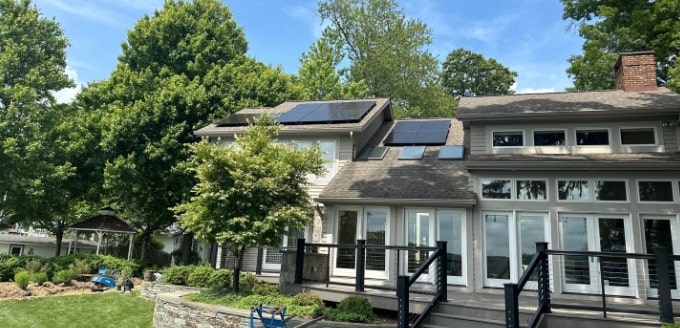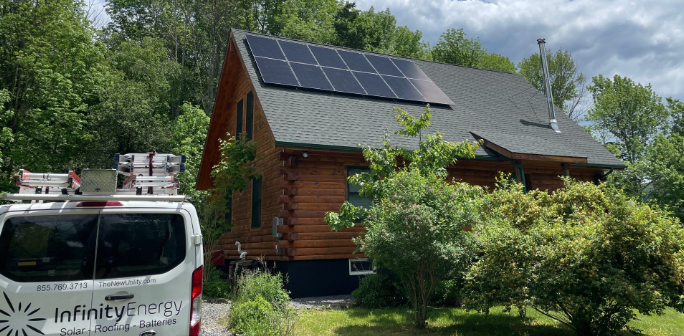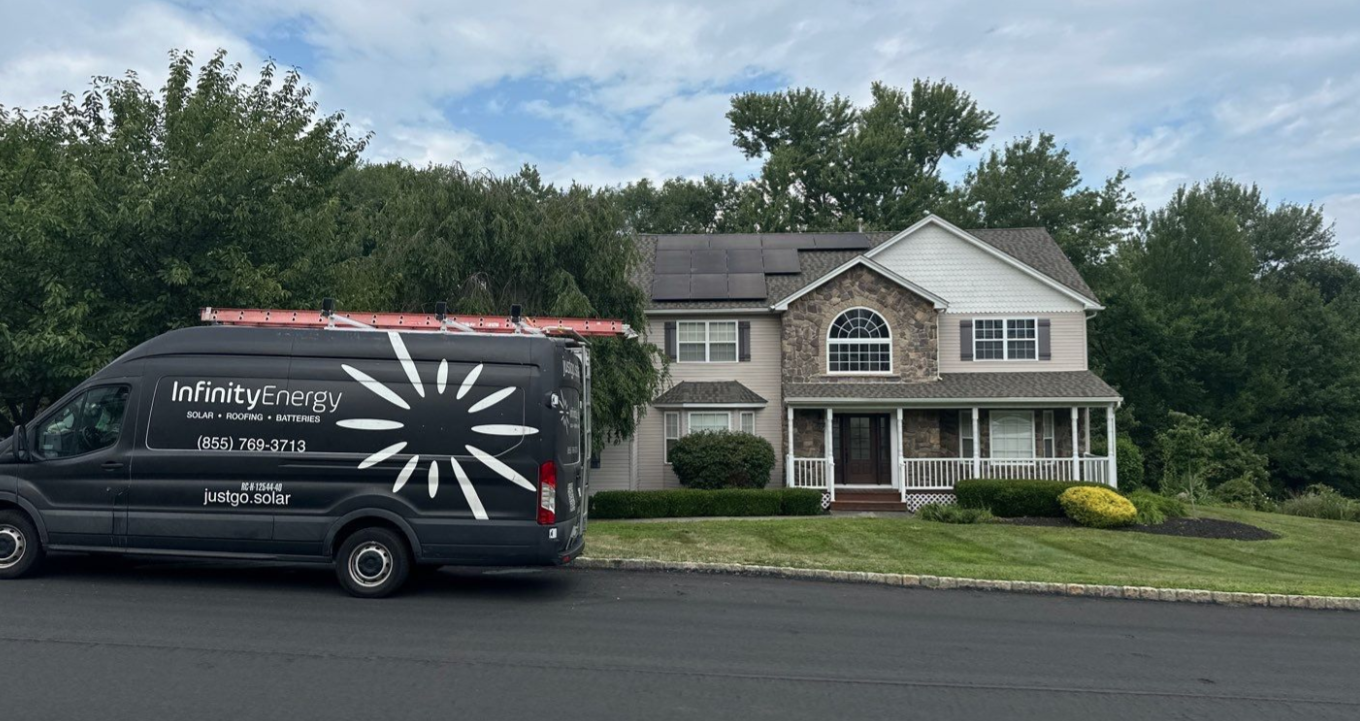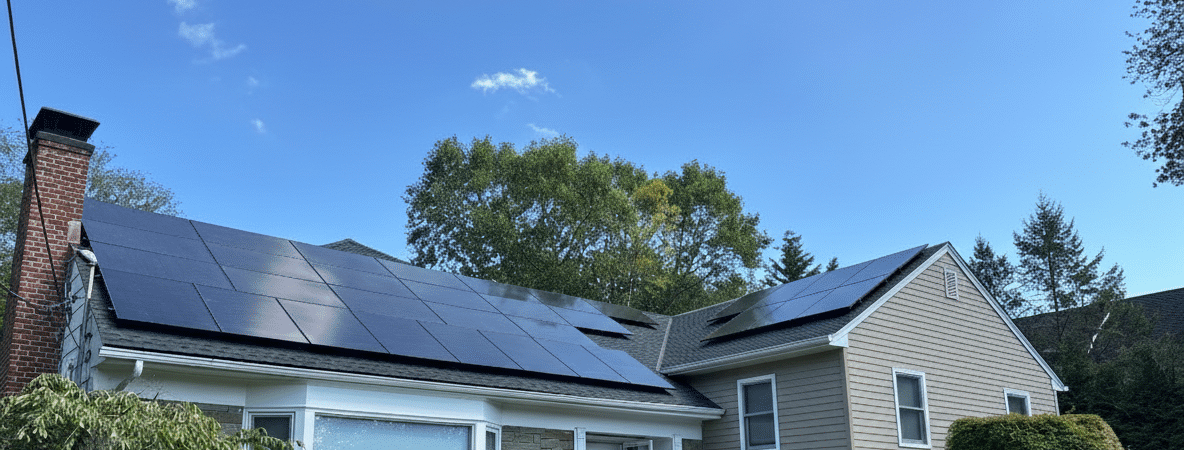When you hear about “free solar panels,” it’s natural to wonder if such an enticing offer really lives up to its claims. The truth is, much like the adage that there’s no free lunch, solar panels touted as free often come with strings attached.
Understanding the “Free Solar Panels” Offer
Most companies that advertise “no-cost solar” are referring to solar leases or Power Purchase Agreements (PPAs). Here’s what that typically involves:
- Solar Leases: You pay a fixed monthly fee to use the solar panels without owning them. The lease company maintains ownership and handles upkeep.
- Power Purchase Agreements (PPAs): You agree to buy the electricity the solar panels produce at a set rate. Again, you do not own the system.
While both options allow you to install solar panels with no upfront cost, they also mean you miss out on certain benefits, including ownership perks and eligibility for most solar incentives.
The Real Costs
By opting for these “free” programs, you’re foregoing:
- Ownership: Which can mean losing out on long-term savings.
- Incentives: Many of the available tax credits and rebates apply only to system owners.
If minimizing upfront costs is your goal, consider looking into $0-down solar loans. These allow you to own the system and take advantage of financial benefits while spreading the cost over time.
Key Points to Remember
- “Free solar panels” typically mean entering a lease or PPA, not actual zero-cost ownership.
- Although the federal government doesn’t give away solar panels, it does offer incentives to reduce the expense of purchasing solar systems.
Understanding these nuances helps in making an informed decision about going solar without falling for misleading promises.

Can You Get Free Solar Panels from the Government?
The simple answer is NO; the government doesn’t provide free solar panels. However, several programs and incentives can significantly reduce the cost of installation, making solar energy more accessible to homeowners.
The Truth Behind “Free” Solar Panels
While the idea of receiving solar panels for free might sound enticing, it’s important to be cautious and mindful of such claims. Some solar panel companies exaggerate claims to advertise solar leases or PPAs & provide solar panels with minimal upfront costs but lock you into paying for years to come. Here, we compare the upfront costs, potential savings, and eligibility for rebates and incentives for each option.
Solar Leases
Utilizing a solar lease presents an excellent opportunity to embrace solar electricity without the burden of expensive initial expenses. The concept is simple: you can install solar panels on your home at no upfront cost, opting to lease a solar power system for a specified period, usually 10 to 15 years.
The key to ensuring a sound financial decision with the solar lease lies in having a monthly payment lower than your current electric bill. By doing so, you save money on energy expenses and contribute to environmentally friendly initiatives without imposing significant financial strains.
As per the solar review, solar lease agreements typically incorporate a price escalator that accounts for the anticipated rise in electricity costs. Consequently, this results in an annual increase in your lease payment. The escalator percentage commonly falls within the range of 1% to 5%.
However, exercising caution regarding the lease price is crucial. If the lease payment is within your regular electricity costs, it’s possible to save money overall. Therefore, before committing to a solar lease, it is essential to assess the terms and costs involved carefully.
Power Purchase Agreements (PPAs)
A power purchase agreement (PPA) serves as a contractual arrangement between a solar company that generates electricity and its customers. Under this agreement, the company takes responsibility for owning and installing solar panels on the owner’s residential or commercial property. In return, the owner agrees to purchase the electrical energy generated by these panels at a flexible rate. Initially, this rate is typically lower than standard utility rates, providing an attractive incentive. However, it’s important to note that the rates may increase over time.
To put the increasing popularity of PPAs into perspective, Statista revealed that an impressive 36.7 gigawatts of renewable power worldwide, including the USA, were contracted through corporate power purchase agreements. This highlights the growing interest in sustainable energy solutions and emphasizes the relevance of exploring different energy procurement options to meet our evolving energy needs.
On the other hand, if you purchase solar panels outright, you become the solar system owner. This ownership allows you to harness the electricity generated by the panels without needing ongoing payments to a third-party company.
Understanding $0-Down Solar Loans
These loans offer the benefits of system ownership while requiring little to no upfront cost. With a solar loan, you can enjoy the financial advantages of going solar, including incentives and tax credits, while making monthly loan payments. This financing option combines the affordability of a solar lease with the benefits of owning the system.
The Downsides of “Free” Solar Panels
While low-cost solar programs seem appealing, there are downsides of free solar panels to consider:
Low-Quality Equipment: Some low-cost solar energy systems may have lower-quality parts and installations. This could lead to a high cost of installation and maintenance later on.
Built-In Rate Escalators: Many PPAs & solar leases include scheduled rate escalators, which can result in higher costs over time.
Reduced Home Values: By getting a solar lease, you can have solar panel service including installation, at no upfront cost, but it also makes it harder to sell your property, potentially reducing its market value.
Poor Customer Service: Some solar leases and agreements come with multi-year service contracts for maintenance and repairs but also bring poor customer service.

Beware of Solar Panel Scams
In addition to legitimate offers with minimal upfront costs, some scams use the language of “free solar panels” to deceive customers. To protect yourself, be cautious of:
Unverified Government Incentives: Be wary of companies claiming to offer free solar panels through government subsidies or grants. Verify incentives with reliable sources.
Unsolicited Door-to-Door Sales: Research companies before signing up for anything, especially if a salesperson shows up unexpectedly.
High Upfront Costs & Hidden Fees: Avoid signing contracts for “free” solar panel systems that involve high upfront costs or hidden fees.
Pressurized Sales Tactics: Beware of companies or organizations using high-pressure tactics to skip providing essential information.
What Factors Should Be Considered When Choosing Between Cash Purchase, Loan, or Lease for Solar Panels?
When deciding how to finance your solar panels, there are several important factors to consider. Each option—cash purchase, personal loan, or solar lease/PPA—has unique advantages and potential drawbacks that can significantly affect your long-term savings and overall financial experience.
Key Considerations for Solar Financing
1. Upfront and Total Costs
- Cash Purchase: Involves the highest initial payment but leads to the greatest savings over time. This option is suitable if you have the funds available and want to maximize your investment returns.
- Personal Loan: Offers either a low or no upfront cost. However, it’s important to factor in interest rates, as they can diminish your savings until the loan is fully repaid.
- Solar Lease/PPA: Requires no upfront payment. Monthly costs might seem lower, but they can accumulate significantly over time, often resulting in lesser savings.
2. Savings Potential
- Cash Purchase: Allows you to harness all possible financial benefits, including tax credits and incentives, potentially increasing your property value.
- Personal Loan: Provides substantial savings in the long run, once the loan is repaid. The payback period varies based on system cost and electricity rates but is typically around 7-8 years.
- Solar Lease/PPA: Offers the least savings. As the solar company claims rebates and incentives, your savings through energy bills might be reduced.
3. Eligibility for Incentives
- Cash Purchase and Personal Loan: Both make you eligible for various rebates and incentives, enhancing your overall savings.
- Solar Lease/PPA: Generally, the solar company claims these benefits, potentially limiting your financial gains.
4. Maintenance Responsibility
- Cash Purchase and Personal Loan: You are responsible for any maintenance, though solar systems typically require minimal upkeep.
- Solar Lease/PPA: The solar company usually covers maintenance, which could be a benefit, although necessary repairs are typically infrequent.
5. Additional Considerations
- Resale Value: Owning your system could increase your home’s resale value, an advantage with cash purchases and personal loans.
- Long-Term Contracts and Escalators: Be cautious with leases as they often contain escalator clauses, which can increase your monthly payments over time, reducing savings.
Each of these options offers distinct pathways to solar energy savings. Consider your financial situation, long-term priorities, and how much control you want over your solar investment to make the best choice for your needs.
How Do Solar Leases Compare to Solar Loans and Community Solar?
Exploring Solar Financing Options: Leases, Loans, and Community Solar
When considering solar energy for your home, understanding the various financing options is essential. Each avenue offers unique benefits, so let’s dive into how solar leases compare to solar loans and community solar programs.
Solar Leases
Solar leases allow you to enjoy the benefits of solar power without the upfront costs typically associated with buying a system. With a lease, a third party installs solar panels on your property, and you pay a fixed monthly fee to use the energy they produce. This option might appeal to those looking for ease with no maintenance responsibilities. However, potential savings may be limited, as the leasing company takes on the costs and any available incentives. Additionally, be cautious of escalator clauses that can increase your payments over time.
Pros:
- No initial investment required.
- Minimal maintenance responsibilities.
Cons:
- Reduced savings potential.
- Ineligible for tax credits and rebates.
Solar Loans
Solar loans let you finance the installation of solar panels, spreading the cost over time while reaping the full benefits of ownership. Monthly payments are manageable and often offset by energy savings. Crucially, you’ll qualify for tax credits and incentives, increasing the system’s financial returns in the long run. As the owner, you’ll also be responsible for maintenance, though these costs are typically minimal.
Pros:
- Ownership of the system increases savings.
- Eligibility for financial incentives and rebates.
Cons:
- Upfront costs transferred to loan payments.
- Maintenance falls on the homeowner.
Community Solar
Community solar offers a unique approach for those unable to install panels directly on their homes. By subscribing to a shared solar farm, participants receive credits on their electricity bills based on their portion of solar energy produced. This option is excellent for renters or those in shaded areas, offering a flexible, no-commitment way to benefit from solar power.
Pros:
- No installation or maintenance on personal property.
- Flexible subscription terms ideal for renters.
Cons:
- Savings can vary based on community program structure.
- No ownership means no personal tax credits.
Making the Right Choice
To determine the best fit, consider your financial situation, home ownership status, and long-term energy goals. Solar loans offer the highest potential savings with incentives, while leases provide simplicity without upfront costs. Community solar suits those seeking environmental benefits with flexibility. Evaluate each option to harness the full potential of solar energy for your needs.
The Bottom Line on Free Solar Panels
While “free solar panels” seems an attractive option for switching solar, they often come with strings attached and may not offer the best long-term savings. Researching and understanding the financing options available is crucial to make an informed decision.
With Infinity Energy’s comprehensive consultation & customized solar solutions, you can experience substantial savings on your electricity bills while reducing your carbon footprint. Our professionals’ transparent & honest approach sets us apart from other companies in the industry.
Thinking about going solar? Start here and see if your home qualifies.












